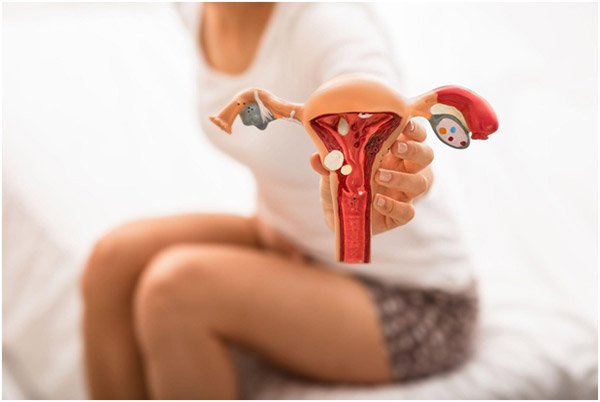Endometriosis is a chronic and often debilitating condition that impacts millions of individuals worldwide, primarily those with female reproductive systems. Despite its widespread occurrence, endometriosis is frequently misunderstood and underdiagnosed. In this blog post, we will explore what endometriosis is, its symptoms, diagnosis, treatment options, and the physical and emotional toll it can exert on those who live with it.
Endometriosis is a medical disorder characterized by the growth of tissue similar to the lining of the uterus, known as the endometrium, outside the uterus. This endometrial-like tissue can be found on various organs within the pelvic area, including the ovaries, fallopian tubes, and the lining of the pelvic cavity. In rare instances, it may even extend to other parts of the body, such as the lungs or areas around surgical scars, including caesarean section scars.
Symptoms
Endometriosis is notorious for its diverse range of symptoms, which can vary significantly from person to person. Some individuals may experience mild symptoms, while others suffer from severe manifestations. In some cases, there may be no symptoms at all.
- Pelvic Pain: Severe pelvic pain is one of the most prevalent symptoms, often occurring during menstruation, ovulation, or even at random times throughout the menstrual cycle.
- Painful Periods (Dysmenorrhea): Many individuals with endometriosis experience intense menstrual cramps that do not respond well to over-the-counter pain medications.
- Painful Intercourse (Dyspareunia): Sexual intercourse can become painful due to the presence of endometrial tissue outside the uterus, leading to discomfort during intimacy.
- Gastrointestinal Symptoms: Some individuals may experience digestive issues, including diarrhea, constipation, bloating, or nausea, particularly during their menstrual cycles.
- Infertility: Endometriosis can contribute to fertility challenges, as it can obstruct or damage reproductive organs, affect the egg reserve in the ovaries, and distort pelvic anatomy.
- Fatigue: Chronic pain and the stress of managing a long-term illness can lead to significant fatigue, impacting daily life.
Diagnosis of Endometriosis
Diagnosing can be challenging because its symptoms often mimic those of other medical conditions. A comprehensive approach is typically used for diagnosis, which includes:
- Medical History: A detailed discussion of symptoms and medical history is crucial for identifying potential endometriosis.
- Pelvic Exam: A physical examination can help detect abnormalities, such as cysts or nodules.
- Imaging Tests: Ultrasound or MRI scans can provide a clearer picture of the pelvic area and help identify endometriosis lesions.
- Laparoscopy: The most definitive method for diagnosing endometriosis involves laparoscopic surgery, where a thin camera is inserted through a small incision in the abdomen to directly visualize and potentially remove endometriotic tissue.
Treatment Options
- Pain Medications: Over-the-counter pain relievers, such as nonsteroidal anti-inflammatory drugs (NSAIDs), can be effective in managing pain associated with endometriosis.
- Hormone Therapy: Hormonal treatments, such as progesterone-only pills, birth control pills, hormonal intrauterine devices (IUDs), or GnRH agonists, can help reduce pain and slow the growth of endometrial tissue.
- Surgery: Laparoscopic surgery can remove endometriosis growths and scar tissue, potentially alleviating pain and improving fertility.
- Lifestyle Modifications: Adopting a healthy diet, engaging in regular exercise, and practicing stress management techniques can help alleviate symptoms and enhance overall well-being.
- Alternative Therapies: Some individuals may find relief through complementary approaches such as acupuncture, yoga, or dietary supplements, although the effectiveness of these methods can vary.
Endometriosis can have profound effects not only physically but also emotionally. Living with chronic pain, fertility challenges, and the unpredictability of symptoms can lead to anxiety, depression, and a diminished quality of life. It is essential for individuals coping with endometriosis to seek support, whether through medical professionals, support groups, or loved ones, to help manage the emotional burden that often accompanies this condition.
Conclusion
Endometriosis is a complex and often misunderstood condition that can significantly impact many aspects of a person’s life. Early diagnosis and effective management are crucial to minimizing its effects. If you or someone you know is experiencing symptoms consistent with endometriosis, it is vital to seek medical advice and support. Living with endometriosis may be challenging, but with appropriate treatment and a supportive network, individuals can learn to manage their symptoms and improve their quality of life.
For expert guidance and personalized care, consider consulting best Endometriosis Doctor in Faridabad Dr. Shweta Mendiratta, a specialist in women’s health and endometriosis management. With the right support and information, it is possible to navigate the challenges of endometriosis and lead a fulfilling life.


